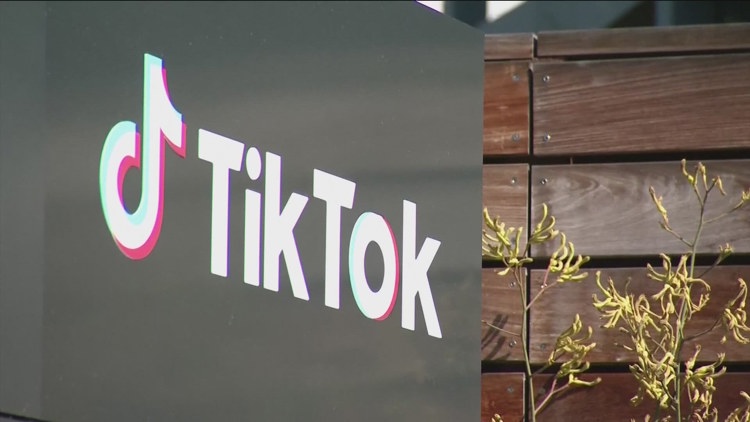

The potential ban will go into effect on Jan. 19.
ATLANTA — Time is running out for TikTok! Some 170 million American users are worried about the app’s future and their ability to use it, with a possible ban around the corner.
That potential ban would go into effect on Jan. 19 if TikTok’s Chinese parent company isn’t bought by a U.S. one.
What will happen if the app is banned?
Over the weekend, U.S. Senator Mark Kelly offered some remarks about what could happen when the ban takes place.
“I imagine there’s going to be a disruption in the service starting on the 19th. I know this is controversial. I know there are folks out there that earn a living on TikTok, but it has a national security risk,” he said.
A recent report from CNN suggests that the most likely outcome is the government forcing app stores for companies like Apple and Google to remove TikTok by that date.
That move would immediately affect potential new users; however, its impact on existing users would likely come sometime after.
Not being available in app stores will essentially prevent TikTok from updating the app, which means existing users will likely face bugs or security holes that could make it hard to use.
CNN’s report also suggests the U.S. government will likely force internet providers to block web versions of TikTok, though that move would likely take longer or be more complicated.
Is there any chance it won’t go into effect?
It’s not…impossible. Firstly, there’s the possibility TikTok gets bought out in the coming days, rendering this whole thing void.
Last Friday, the Supreme Court heard arguments from the app’s creators, who have insisted there is no foreign threat when it comes to user’s data. They also defended the app under the principle of free speech.
With that in mind, it’s also possible the court could issue a preliminary block of the law that would ban the app before the Jan. 19 date.
However, as of Jan. 10, it seems likely that the court will uphold the law, even after hearing arguments.
Does the new law apply to any other social media platforms?
According to a March 5 press release issued by the bill’s sponsors, H.R.7521 also applies to other social media applications that are controlled by foreign adversaries of the U.S. that “pose an unacceptable risk to U.S. national security.” Those foreign adversaries, which are defined in Title 10 of the U.S. Code, include Russia, Iran and North Korea, in addition to China.
“Such apps allow our adversaries to surveil and influence the American public, both through the data we produce and the information we share and consume,” the press release says.
The Electronic Frontier Foundation (EFF) says Chinese instant-messaging app WeChat would likely also be a target. WeChat is one of the world’s largest standalone messenger platforms, with over a billion users, according to EFF.
However, the legislation does not apply to social media apps or websites that are primarily used to post product reviews, business reviews, or travel information and reviews, according to the bill’s text.
Could the new presidential administration change the decision?
Despite recent promises that he would save the social media platform, there’s not much Trump could do if the law takes effect before he’s in office.
CNN suggests that he could simply not enforce the law, but that also assumes companies like Apple and Google would take his assurance at face value and be willing to gamble with breaking the law.


